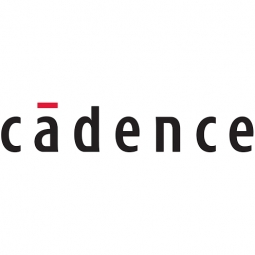Technology Category
- Networks & Connectivity - Cellular
- Networks & Connectivity - Gateways
Applicable Industries
- Electrical Grids
- Telecommunications
Applicable Functions
- Product Research & Development
Use Cases
- Time Sensitive Networking
- Vehicle Telematics
Services
- System Integration
About The Customer
Altair is a fabless chip company that specializes in developing and selling high-performance and low-power 4G Long-Term Evolution (LTE) semiconductor solutions. The company's main market is consumer-centric, with millions of its chips going into devices including tablets, netbooks, chromebooks, mobile hotspots, cameras, routers, and gateways. Altair is also expanding into the growing Internet of Things (IoT) market and has recently announced a portfolio of LTE chipsets that are making a significant impact in the marketplace with their power, size, and cost. The company is leading the repositioning of LTE from a high-throughput, expensive technology to one that could fit into demanding IoT and machine-to-machine (M2M) applications such as smart meters, vehicle telematics, and wearable devices.
The Challenge
Altair, a fabless chip company specializing in high-performance, low-power 4G Long-Term Evolution (LTE) semiconductor solutions, faced several challenges in its quest to capture market share in the rapidly growing LTE market. The advanced LTE technologies required high levels of signal processing and careful design to minimize power consumption and maximize performance. The company also had to deal with high costs related to intellectual property (IP) licensing of different system-on-a-chip (SoC) components, tapeouts in advanced process geometries, carrier certifications, and significant software investments. Furthermore, Altair had to meet aggressive time-to-market and price targets for its chipsets. The company's product portfolio, divided into Supercharged LTE and LTE for IoT, presented different challenges, whether it was to enhance performance or reduce power consumption.
The Solution
To overcome these challenges, Altair turned to Cadence's analog IP solutions. Cadence provided a complete suite of analog IP, analog design, and integration expertise, along with controller and PHY IP for LPDDR2, USB 2.0, and M-PCIe interfaces. Cadence's analog IP solutions enabled Altair to develop leading-edge, low-power analog product designs without compromising performance. The company was able to reduce its development cycle significantly, thanks to Cadence's experienced team and fast customer support. Cadence also performed co-simulation with Altair's RF circuit to ensure there were no issues, leading to a successful tapeout and a design that worked the first time on the test chip. By offering a single source of IP for USB, memory, peripherals, and analog, Cadence made it easier for Altair to integrate blocks and optimize layouts to fit the chip floor plan.
Operational Impact
Quantitative Benefit

Case Study missing?
Start adding your own!
Register with your work email and create a new case study profile for your business.
Related Case Studies.

Case Study
Hydro One Leads the Way In Smart Meter Development
In 2010, Ontario’s energy board mandated that time-of-use (TOU) pricing for consumers be available for all consumers on a regulated price plan. To meet this requirement, Hydro One needed to quickly deploy a smart meter and intelligent communications network solution to meet the provincial government’s requirement at a low cost. The network needed to cover Hydro One’s expansive service territory, which has a land mass twice the size of Texas, and its customers live in a mix of urban, rural, and remote areas, some places only accessible by air, rail, boat or snowmobile. Most importantly, the network needed to enable future enterprise-wide business efficiencies, modernization of distribution infrastructure and enhanced customer service. To meet these needs, Hydro One conceptualized an end-to-end solution leveraging open standards and Internet Protocols (IP) at all communication levels. The utility drew upon industry leaders like Trilliant to realize this vision.

Case Study
Selling more with Whirlpool
Whirlpool wanted to add connectivity to appliances and transform the company's relationship with customers. Traditionally, Whirlpool interaction with customers was limited to purchases made once every ten years. Connected washer and dryers provide exciting new features like remote management of start times and inter-machine communication.

Case Study
SAS® Analytics for IoT: Smart Grid
Companies face falling revenues, rising infrastructure costs, and increasing risk of outages caused by inconsistent energy production from renewable sources. Less money is coming in as more people and organizations take steps to curb their energy use. Utilities are paying more to maintain and build infrastructure due to increasing complexity, resulting from the rising number of intermittent and variable renewable energy sources connected in the distribution grid.

Case Study
Enel Secures Italian Power Generation Network
Electric energy operators around the world are working to increase the reliability and cyber resiliency of their systems. This includes Enel, a global power company that manages and monitors the Italian power grid. This grid:• Serves 31 million customers• Has a net installed energy capacity exceeding 31 gigawatts• Includes more than 500 power generation plants,including hydroelectric, thermoelectric, and wind• Is managed and monitored by Enel 24/7/365• Is operated by Terna, the Italian Transmission System Operator (TSO)Enel is responsible for the availability of the grid’s underlying ICS and industrial network. It also manages Regional Control Centers and Interconnection Centers which connect with the TSO. The TSO manages the flow of energy to the grid plus controls and remotely regulates the power generation of power plants, increasing and decreasing power production as required. The complex system of interaction and cooperation between Enel and the TSO has strong security implications as well as operational and business challenges.

Case Study
Vodafone Hosted On AWS
Vodafone found that traffic for the applications peak during the four-month period when the international cricket season is at its height in Australia. During the 2011/2012 cricket season, 700,000 consumers downloaded the Cricket Live Australia application. Vodafone needed to be able to meet customer demand, but didn’t want to invest in additional resources that would be underutilized during cricket’s off-season.








